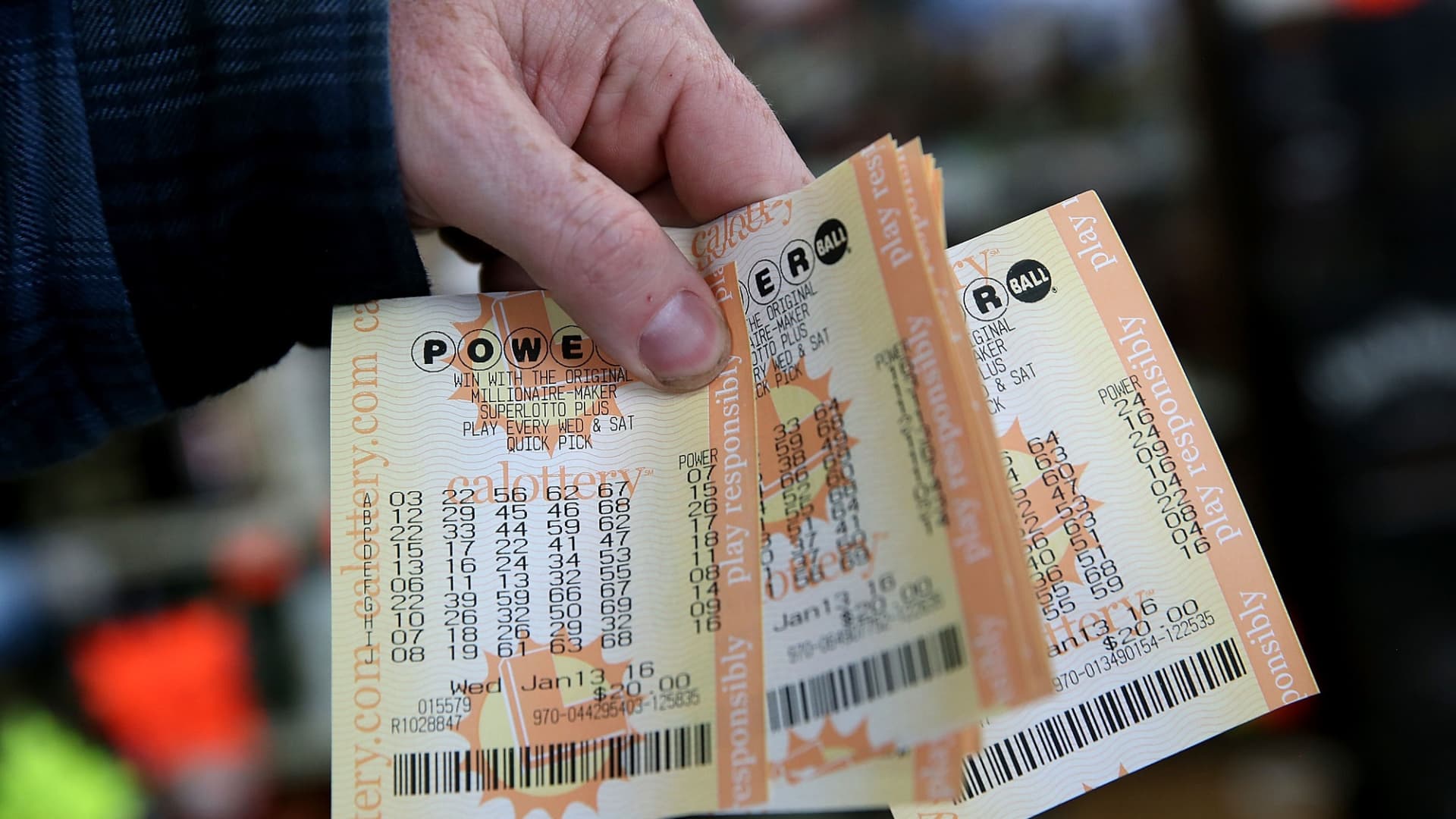Products You May Like
The Powerball jackpot has soared to an estimated $900 million after Saturday’s drawing went by without a winner.
It’s still the third-largest prize in the game’s history ahead of Monday night’s drawing, according to Powerball. But the windfall will shrink significantly after taxes.
If you choose the lump sum payout, the estimated pre-tax cash value is $465.1 million, whereas 30 years of annual payments are worth an estimated $900 million before taxes.
If you win the jackpot, experts suggest working with a tax professional, financial advisor and estate planning attorney immediately.
“It’s all about protection and paying the least amount of taxes possible, so working with professionals is very important,” said certified financial planner John Chichester Jr., founder and CEO of Chichester Financial Group in Phoenix.
He said winners who choose the 30-year annuity payments option may have “a lot more flexibility” for tax planning.
The chances of winning Powerball’s grand prize are 1 in about 292 million.
Roughly $111.6 million goes straight to the IRS
Winners need to plan for a hefty upfront federal withholding. The IRS requires a mandatory 24% withholding for winnings of more than $5,000.
If you choose the $465.1 million cash option, the 24% withholding automatically reduces your prize by roughly $111.6 million.
Chichester said it’s similar to the mandatory withholding for required minimum distributions from retirement accounts. But since your actual tax bracket may be higher, you can owe additional levies at tax time.
“That’s exactly what happens with the lottery,” he said. “The 24% [withholding] is not the only tax bill” because the highest federal tax bracket includes another 13%.
How to figure out your federal tax brackets
While inflation increased the federal income tax brackets for 2023, millions from the lottery still pushes the winner into the 37% bracket.
For 2023, the 37% rate applies to taxable income of $578,126 or more for single filers and $693,751 or higher for married couples filing together. You calculate taxable income by subtracting the greater of the standard or itemized deductions from your adjusted gross income.
But the 37% rate doesn’t apply to all of your taxable income. For 2023, single filers will pay $174,238.25, plus 37% of the amount over $578,125. As for married couples filing together, the total owed is $186,601.50, plus 37% of the amount above $693,750.
The jackpot winner’s remaining tax bill after the 24% federal withholding depends on several factors but could easily represent millions more.
You may also owe state taxes, depending on where you live and where you purchased the ticket. Some states have no income tax or don’t tax lottery winnings, but others have top-income state tax brackets exceeding 10%.
Powerball isn’t the only chance to win big. The jackpot for Tuesday night’s Mega Millions drawing now stands at an estimated $640 million. The chance of hitting the jackpot in that game is roughly 1 in 302 million.
